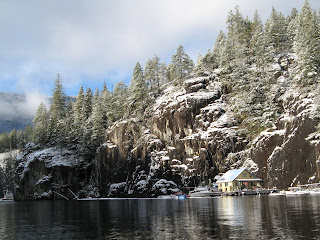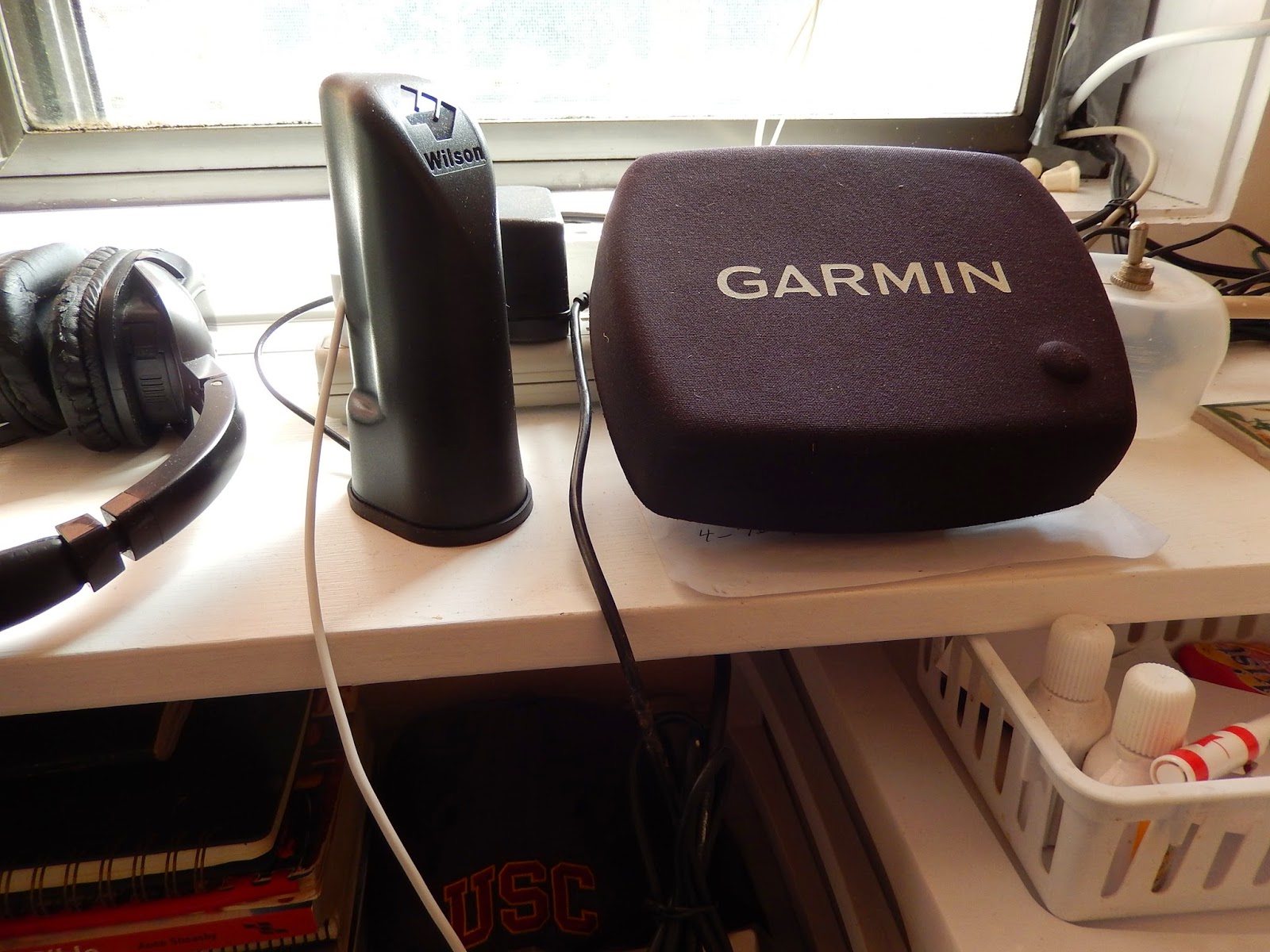2014 Retrospective from Powell River Books
 2014 was a great year for Wayne and me, and, of course, Powell River Books. Here are a few of the exciting moments:
2014 was a great year for Wayne and me, and, of course, Powell River Books. Here are a few of the exciting moments:
January - Wayne and I present about off-the-grid living at the Vancouver Boat Show. We went to Arizona for sports and a visit to the Titan Missle Museum. Our cabin was entered in Sunset Magazine's Small Space, Big Dreams Contest. On a sad note, we lost our beloved cat Stick Tail after 23 years of good living and companionship.
February - Snow and fog blanket us in white at the cabin. We drive to Oregon to watch USC Women's Basketball vs. University of Oregon. This was the next installment in a new vacation trend, sports-cations. We sell our 30' Bayliner and take our 24' boat from Bellingham to Port Moody to get a new engine upgrade.
March - I finally get the knack of making sourdough bread using my starter. My garden gets worked up for spring, our cabin was in the Sunset Magazine photo contest, and we head to Phoenix, Arizona, for some sun and Spring Training baseball.
April - Our good friend John helps us remodel the cabin with painting and pine paneling. I love the new classic cabin look! We get a TV for easier video watching, and more lights to decorate our off-the-grid home. Our refurbished 24' Bayliner gets a new home in the North Harbour in Powell River.
May - I get my float garden planted, and battle deer mice for its survival. Wayne gives a presentation at the Whatcom Writers and Publishers meeting about travel memoirs, and our Barn Swallows return to build a nest and raise a family.
June - We discover University of British Columbia investigating Powell Lake and Wayne develops a relationship to learn more about oceanography to write a book about the Salish Sea (Straight of Georgia). We launch our new (to us) barge for quad riding on Powell Lake, and begin cruising in our 24' Bayliner.
July - I begin a blog series on Coastal BC plants, we continue cruising on the chuck (ocean) and take lots of camping barge quad rides on Powell Lake. Kurt flies in to rent John's cabin, we help with the Sea Fair Fly-in at the Powell River Airport, and Red Letter Films comes to the cabin to film for a new French-language series about West Coast Cottages.
August - Wayne and I fly to Newfoundland for a camping trip that will take us to Labrador as well. Our summer weather is the best we've had in years. We take more barge trips on the lake, and a flying camping trip in 997 before she goes into the shop for new avionics.
September - We get ready for the end of summer and the upcoming rainy months by installing a new porch enclosure. The long hot summer brings out lots of yellow jackets, Wayne goes out with the UBC team to study the Fraser River plume, and I learn more about forestry on the Western Forest Products tour.
October - I expand with two new blogs, Margy Meanders for general topics and Powell River Quad Rides to consolidate posts about quad riding. I do some seed saving, I harvest my first quinoa and chamomile, and our USC sports-cations begin with a trip to Pullman to sit through a rainy football game and a close encounter with a deer on the highway.
November - I try saving my geraniums and dahlias before the frost arrives. For the first time, Powell Lake turns a strange milky green. Everyone thinks it's heavy run-off from glaciers and dry hillsides. It's too cold to camp, but we still take barge and quad day trips. We take a USC sports-cation to Los Angeles for football, basketball, and warm SUN!!
December - Our cabin is on TV in Chalets de la cote ouest (West Coast Cottages). We get 997 back from the avionics shop with her new ADS-B tracking, collision avoidance, and weather avionics. We spend Christmas with our good friend Jeanne in Bellingham, and New Years in Los Angeles for one more USC sports-cation.

































































